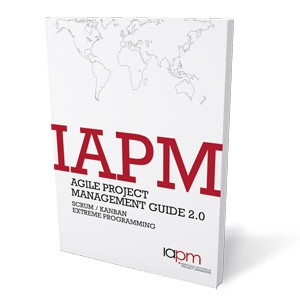Associations publish revised guides
 22.04.2013 -
Two international project management associations have updated their certification knowledge guides almost simultaneously. The International Association of Project Managers (IAPM) published the updated version of its guide to Scrum and agile project management in March 2013. Just a few weeks earlier, the 5th edition of the Project Management Institute’s (PMI) Project Management Body of Knowledge (PMBOK® Guide) was published. We put three questions in this connection to author and trainer Dr. Roland Ottmann, whose company Ottmann & Partner Management Consulting provides a detailed online comparison.
22.04.2013 -
Two international project management associations have updated their certification knowledge guides almost simultaneously. The International Association of Project Managers (IAPM) published the updated version of its guide to Scrum and agile project management in March 2013. Just a few weeks earlier, the 5th edition of the Project Management Institute’s (PMI) Project Management Body of Knowledge (PMBOK® Guide) was published. We put three questions in this connection to author and trainer Dr. Roland Ottmann, whose company Ottmann & Partner Management Consulting provides a detailed online comparison.Your project management training company goes to great lengths to provide detailed and objective comparisons of the big four associations' certificates. How extensive were the updates?
Dr. Roland Ottmann: First of all, let me emphasise that we aren’t just comparing the IAPM and the PMI. Our tables also include the GPM and the APM Group with its Prince2 – that’s all four relevant organisations. I‘m not personally involved in the comparisons because as Chairman of the IAPM’s Council of Experts I contributed to the new version of its Agile PM Guide 2.0. We’ve had some very positive feedback up to now. The new IAPM guide only covers Scrum, Kanban and Extreme Programming. The PMI’s new guide, the PMBOK, is more generalised and doesn’t focus on the specific methods that a project manager actually works with. At 600 pages, it also has a lot more content than the previous version. I think it’s commendable that the PMI has gone into this much detail and the authors have obviously been very meticulous in their work. For example, they have constructively yet critically incorporated the new ISO 21500 international project management standard in the PMBOK Guide. I think they’ve done a very impressive job.
They’ve added a brand new field of knowledge.
Dr. Roland Ottmann: Yes. I think that’s one of the important new aspects. The PMBOK Guide now includes the subject of stakeholder management and four stakeholder management processes. The PMI has started to close a real gap. There are four processes: Identify Stakeholder, Plan Stakeholder Management, Manage Stakeholder Engagement and Control Stakeholder Engagement, some of which have been taken over from the subject of Project Communications Management. This change is an example of taking ISO 21500, which defines two stakeholder management processes, into account. It’s a good move and I’m sure that the PMI will continue to add more depth.
Are there any areas where you expected more?
Dr. Roland Ottmann: It isn’t easy for me to criticise other associations as Chairman of Council of Experts of the IAPM. In fact, people may well believe I’m biased. On the other hand, I’ve said publicly on many occasions that I think the PMI underestimates soft skills. The new edition PMBOK Guide still focuses on technical project management competences. I think that’s a shame. This technical way of looking at project management - which isn’t exclusive to the PMI - is one of the reasons why I decided to support the IAPM and their certifications as trainer. At the IAPM there is consensus on the fact that project management involves both hard skills and soft skills. Psychological factors have a decisive influence on a team’s success. So do cultural factors. You can and should learn about both. Only then can you be a genuinely good project manager. As a trainer, I think that’s important.
Comparison of project management associations
Certification guidelines (sorry, german only)
www.ottmann.de/download/pm-richtlinien-vergleich.pdf
Knowledge fields and content (sorry, german only)
www.ottmann.de/download/opmc-pm-zertifizierungsvergleich-de.pdf
Dr. Roland Ottmann, born 1961, is a project management expert who is known for both the books he has written and his activities for project management associations. In 1996 he initiated the German Project Excellence Award, followed by the International Project Excellence Award in 1998. Between 1997 and 2002 he managed the Project Excellence evaluation model project and organised the German and International Project Excellence Awards, acting as a member of the jury between 1998 and 2006. Dr. Roland Ottmann was President of the GPM Deutsche Gesellschaft für Projektmanagement e.V. between 2002 and 2006. Today, as Chairman of Council of Experts, he is a leading member of the IAPM International Association of Project Managers.
« Back to overview
